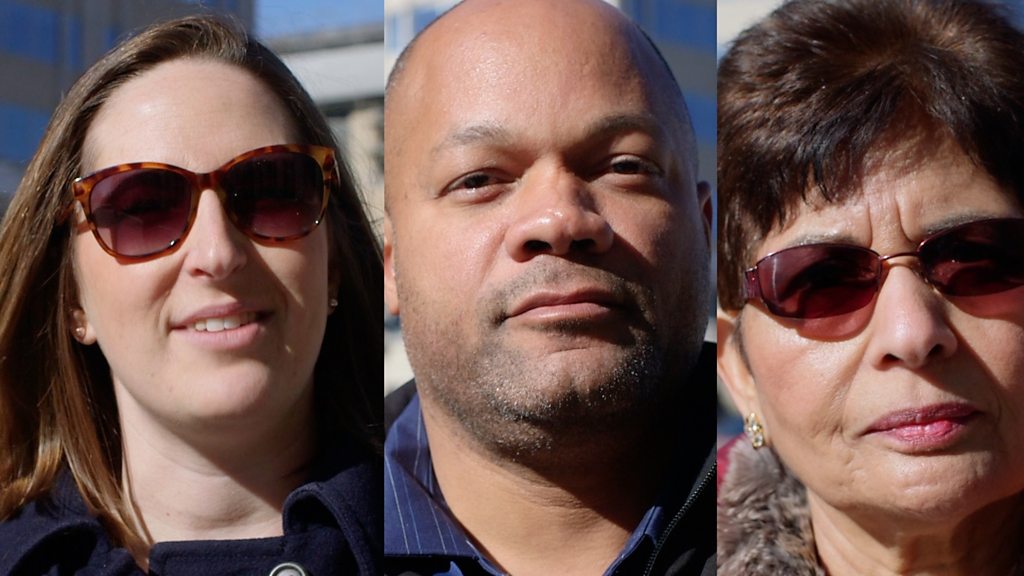
The US government has begun a federal shutdown after the Senate failed to agree on a new budget.
It was unclear which way the vote would go as the midnight deadline approached, with Republicans and Democrats split on key issues.
Despite last minute bipartisan meetings, the bill to fund the government until 16 February did not receive the required 60 votes.
It means many government services will close down until a budget is agreed.
It is the first shutdown in US history to happen while the same party controls both chambers of Congress and the White House.
The last US shutdown happened in 2013 and lasted for 16 days, during which many federal employees took a forced leave of absence.
The House of Representatives voted 230-197 on Thursday night to extend funding until next month, but the measure failed to pass the Senate by a margin of 50-49.
Five Republicans voted against the bill while five Democrats broke rank to support it.
Many government offices will close as federal law requires agencies to shut down if Congress has not allocated money to fund them.
National parks and monuments are also likely to face closure.
But essential services will still run. These include national security, postal services, air traffic control, inpatient medical services, emergency outpatient medicine, disaster assistance, prisons, taxation and electricity generation.
In the hours before the vote, President Donald Trump sounded pessimistic, tweeting that it was "not looking good for our great Military or Safety & Security on the very dangerous Southern Border".
He invited Democratic Senate leader Chuck Schumer, a fellow New Yorker, to the White House for last-ditch talks but they failed to find sufficient common ground.
Emerging about an hour later, Mr Schumer told reporters "some progress" had been made, but a "good number of disagreements" remained, including a difference in opinion regarding the Democrats` desire to extend talks for another five days.
Blame game begins
Anthony Zurcher, BBC News, Washington
The game of chicken ended with a head-on crash.
Republicans are anxious to label this the "Schumer shutdown" and, essentially, they`re right. Senate minority leader Chuck Schumer and his fellow Democrats (with the help of a few Republicans) blocked a bill that would have kept the government open - at least temporarily.
Determining responsibility and apportioning blame, however, are two decidedly different endeavours.
Democrats will argue that they had a deal with the president on their bipartisan compromise that included immigration reform - only to have him back away during that fateful obscenity-laden Oval Office meeting last week. Republicans will frame this as liberals putting undocumented immigrant protections over military readiness and health insurance for poor kids.
The blame game began at midnight, and the winner has yet to be decided. Generally, the loser in these types of showdowns is the party entering the fight with the lowest popularity - bad news for Mr Trump and the Republicans.
The good news, for both sides, is that their political bases will be thrilled they are playing hardball. Midterm election years, like 2018, tend to encourage this kind of rally-the-base manoeuvres.
Now that the line has been crossed, this could become a protracted, ugly fight.
What`s the problem?
The main bone of contention has been Democrats` demands for more than 700,000 undocumented immigrants who entered the US as children to be protected from deportation.
These "Dreamers", as they are known, were granted temporary legal status under a programme established by former President Barack Obama.
In September, Mr Trump announced he was ending the programme and allowing Congress until March to come up with a replacement.
The Republican president and congressional conservatives have been using the issue as a bargaining chip in an attempt to wring concessions from Democrats.
Mr Trump wants funding for tough new border controls, including his proposed US-Mexico wall.
Republicans added a sweetener to the bill in the form of a six-year extension to a health insurance programme for children in lower-income families.
But Democrats want this programme extended permanently.
The legislative negotiations went up in flames last week after Mr Trump allegedly complained the US was letting in immigrants from certain "shithole countries".
What could be the political fallout?
Neither party wishes to be held accountable for closing the government as midterm elections loom in November.
A Washington Post-ABC poll taken before the vote suggested that by a 20-point margin more Americans blame President Trump and his party for the imbroglio, rather than Democrats.
But the shutdown is problematic for 10 Democratic senators who are up for re-election this year in states won by Mr Trump.
They are likely to face voters this autumn amid a hail of attack ads claiming they closed the US government to help illegal immigrants.
Democrats will hope to focus criticism on the president and the Republicans` ability to govern.
What happens in a shutdown?
Many federal agencies will close down but essential services will continue to run.
US Defence Secretary Jim Mattis said that over 50% of his department would not go to work, and some maintenance, training and intelligence operations would come to a halt.
National parks and monuments could face closure, which provoked an angry public reaction during the last shutdown in 2013.
Prior to the vote, the Trump administration was reportedly making contingency plans to keep the national parks running if no deal is reached.
Visa and passport processing could also be delayed.
More on Trump`s first year.


0 comments:
Post a Comment